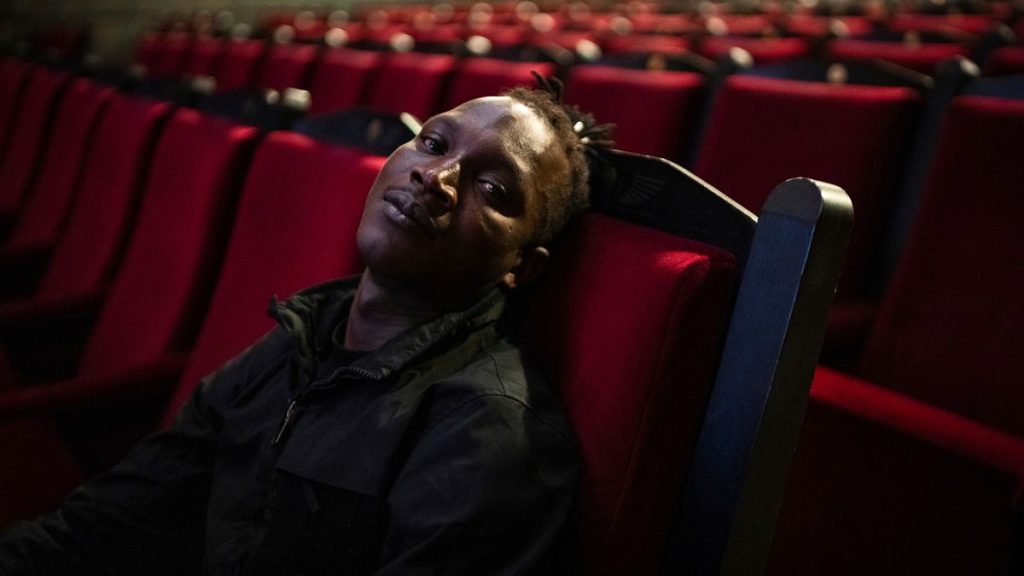Abou Sangaré’s story is a poignant illustration of the complexities and contradictions inherent in immigration policies, particularly in the context of France’s evolving stance on migration. The 23-year-old Guinean actor, catapulted to international recognition for his award-winning performance in “Souleymane’s Story,” has navigated a challenging personal journey mirroring the narrative of his on-screen character. Sangaré’s real-life struggles to secure legal residency in France, culminating in a one-year work visa after multiple rejections and a looming deportation order, underscore the precarious existence faced by many migrants, even those who achieve significant cultural contributions. His decision to temporarily put his acting career on hold to work as a mechanic, a trade he learned prior to his cinematic debut, reflects the pragmatic choices often necessary for survival in a new country. This juxtaposition of artistic triumph and bureaucratic hurdles highlights the human dimension often lost in the political discourse surrounding immigration.
“Souleymane’s Story,” directed by Boris Lojkine, tells the tale of a Guinean migrant navigating the complexities of the asylum application process while working as a delivery driver in Paris. The film’s critical acclaim, including the Jury Prize and Sangaré’s Performance Prize at the Cannes Film Festival’s Un Certain Regard section, amplified the story’s resonance beyond the silver screen. It brought to light the challenges faced by individuals seeking refuge and stability in a foreign land, mirroring Sangaré’s own experiences. The film’s success comes at a critical juncture in France’s political landscape, as the government adopts a stricter stance on irregular migration, emphasizing increased deportations and tighter regulations for those lacking permanent legal status. This context adds another layer of significance to Sangaré’s story, highlighting the tension between individual aspirations and evolving national policies.
Sangaré’s journey began with his departure from Guinea at the age of 15, driven by the need to support his ailing mother. His path to France was fraught with hardship, including imprisonment in Libya following an unsuccessful attempt to cross the Mediterranean. After finally reaching Italy, he arrived in France in 2017, where he faced further bureaucratic obstacles. Despite his efforts to be recognized as a minor being denied, Sangaré demonstrated resilience. He enrolled in high school, acquired the valuable skill of car mechanics, and ultimately crossed paths with filmmaker Boris Lojkine, leading to his transformative role in “Souleymane’s Story.” This trajectory showcases his determination and adaptability in the face of adversity, qualities often characteristic of individuals who undertake the arduous journey of migration.
The parallel between Sangaré’s personal experiences and the fictional narrative of Souleymane underscores the film’s authenticity and impact. Lojkine’s acknowledgment of the responsibility he felt in casting Sangaré, and his statement that he would only consider his film complete once Sangaré secured his papers, highlights the ethical considerations involved in telling stories about vulnerable populations. It also reinforces the interconnectedness between art and life, particularly when dealing with subjects as sensitive and complex as migration. The film’s success has undoubtedly contributed to raising awareness about the challenges faced by migrants, giving a human face to the often-abstract political debates.
The timing of “Souleymane’s Story” release coincides with a hardening of France’s stance on immigration, a trend reflected in the increasing number of deportations ordered in recent years. Professor Serge Slama’s observation that France leads Europe in expulsion procedures highlights the context in which Sangaré’s visa grant, though a personal victory, represents a small exception within a larger and more restrictive system. The government’s focus on streamlining deportations and making it more difficult for undocumented immigrants to remain in the country creates a challenging environment for individuals seeking to establish lives and contribute to French society. This policy direction raises questions about the balance between national security concerns and the human rights of individuals seeking refuge and opportunity.
In conclusion, Abou Sangaré’s story embodies the complexities of the migrant experience, weaving together themes of resilience, artistic achievement, and the precariousness of legal status. His journey from Guinea to France, marked by hardship and perseverance, culminates in a moment of both personal and artistic triumph, even as he faces ongoing challenges in securing his future. His story serves as a microcosm of the broader immigration debate, highlighting the human cost of restrictive policies and the contributions that migrants can make to their adopted countries. The contrast between Sangaré’s cinematic success and his ongoing struggle for legal recognition underscores the need for more nuanced and humane approaches to immigration, ones that recognize the individual stories and potential contributions of those seeking a new life.














